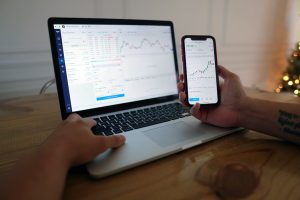Forex, or foreign exchange, is the largest financial market in the world. It operates 24 hours a day, five days a week, with trading sessions in different time zones around the globe. The New York trading session is one of the most active and influential sessions, and its closure has a significant impact on the forex market.
The New York trading session starts at 8:00 AM EST and closes at 5:00 PM EST. This session is important because it overlaps with the European session, which is the busiest and most volatile session. The New York session also includes the release of important economic data, such as non-farm payroll and GDP numbers, which can move the market significantly.
When the New York session closes, the forex market experiences a lull in activity. This is because New York is one of the major financial centers in the world, and its closure means that a significant number of traders and institutions are no longer actively participating in the market. This can lead to lower trading volumes, tighter bid-ask spreads, and reduced liquidity.
The reduced liquidity during the New York session closure can make it more difficult for traders to execute trades at favorable prices. This is because there are fewer market participants willing to buy or sell at the same time, leading to wider bid-ask spreads. As a result, traders may experience slippage, where their trades are executed at a different price than expected.
The impact of the New York session closure can also be felt across other financial markets, such as commodities and stocks. This is because forex trading is closely linked to other markets, with currency movements affecting the prices of commodities and stocks. When the New York session closes, there may be less demand for commodities and stocks, leading to lower prices.
However, the impact of the New York session closure is not always negative. It can also create opportunities for traders who are able to anticipate the market movements. For example, if a trader expects that the New York session closure will lead to lower trading volumes and reduced liquidity, they may decide to close their positions before the session ends to avoid slippage. Alternatively, if a trader believes that the reduced liquidity will create a trading opportunity, they may decide to enter a position during the period of low activity.
In conclusion, the closure of the New York trading session has a significant impact on the forex market. It can lead to lower trading volumes, tighter bid-ask spreads, reduced liquidity, and potentially lower prices for commodities and stocks. However, it can also create opportunities for traders who are able to anticipate the market movements. As with any market event, it is important for traders to stay informed and adapt their trading strategies accordingly.





